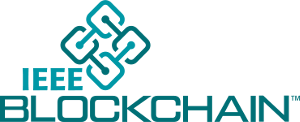IEEE Blockchain Technical Briefs - Q2 2022
A collection of short technical articles
Blockchain Assimilation in Fisheries Supply Chain
By Colin Callinan, School of Business, Department of Enterprise and Technology, Atlantic Technological University, Dublin Road, Galway; Dr. Amaya Vega, School of Business, Department of Enterprise and Technology, Atlantic Technological University, Dublin Road, Galway; Dr. Trevor Clohessy, School of Engineering, Atlantic Technological University, Dublin Road, Galway; and Prof. Graham Heaslip, School of Engineering, Atlantic Technological University, Dublin Road, Galway
Technology adoption remains a key driver of achieving a competitive edge over competitors, better operational effectiveness and reducing operating costs. An under researched area of technology adoption is how a technology diffuses and is assimilated throughout an organisation. We first introduce an overview of Blockchain followed by a summary of Blockchain in fisheries supply chain. Next, IT assimilation is described. Finally, this paper presents an existing IT assimilation framework that is utilised as a roadmap for the assimilation of Blockchain technology in the fisheries supply chain.
Blockchain Technologies in the Design of Industrial Control Systems for Smart Cities
By Gabriela Ahmadi-Assalemi, Cyber Quarter – Midlands Centre for Cyber Security / University of Wolverhampton, UK; and Haider Al-Khateeb, Cyber Quarter – Midlands Centre for Cyber Security / University of Wolverhampton, UK
The proliferation of sensor technologies in Industrial Control Systems (ICS) helped to transform the environment towards better automation, process control and monitoring. However, sensor technologies expose the smart cities of the future to complex security challenges. Luckily, the sensing capabilities also create opportunities to capture various data types, which apart from operational use can add substantial value to developing mechanisms to protect ICS and critical infrastructure. We discuss Blockchain (BC), a disruptive technology with applications ranging from cryptocurrency to smart contracts and the value of integrating BC technologies into the design of ICS to support modern digital forensic readiness.
Blockchain-based Marketplaces for Crowdsourcing Renewable Energy Forecasting
By Mahdieh Shamsi, Student Member, IEEE; and Paul Cuffe, Member, IEEE, School of Electrical and Electronic Engineering, University College Dublin, Ireland
In line with the ambitious goal of net-zero carbon emission, the deployment of renewable energy sources is accelerating rapidly in the power sector. However, the energy production of these renewable sources, such as wind and solar, is volatile due to changes in weather conditions. This issue impacts the reliable planning and operation of these energy sources in the power systems. Therefore, accurate forecasting methods are essential for the proper usage of renewable sources. This piece explores how blockchain technology can be employed to implement crowdsourced platforms for renewable energy forecasting where participants are incentivised to provide truthful information. The main application, which is the focus of this work, is the blockchain-hosted prediction markets. Other platforms, including data markets, as well as the possibility of the integration with the internet of things are also mentioned. All these kinds of platforms benefit from access to massive and diverse sources of information which improve the quality of renewable energy forecasting.
Exploring the Impact of Decentralized Autonomous Supply Chains (DASCs) in the Agricultural Sector
By Dr. Trevor Clohessy, School of Engineering, Atlantic Technological University, Dublin Road, Galway; and Professor Graham Heaslip, Head of School of Engineering, Atlantic Technological University, Dublin Road, Galway
Blockchain, distributed ledger technology (DLT) and smart-contract technology enhance the effectiveness and automation of business processes along supply chains. The rising interest in the development of decentralized autonomous organizations (DAO) shows that blockchain and related decentralized technologies have the potential to reform how businesses conduct their supply chain operations. A DAO is an organization wherein business rules are encoded in smart-contract programs that are executed automatically when specified rules are met. There is a scarcity of research that has examined the impact of blockchain technologies in facilitating decentralized autonomous supply chains in the agricultural sector. Therefore, the purpose of this paper is twofold. First, we introduce a new concept to the blockchain literature called decentralized autonomous supply chains (DASCs) and discuss how this new concept can overcome the challenges associated with extant centralized agricultural supply chains. Finally, we also propose a framework that can explore how the concept of DASCs assimilates into agricultural supply chains to assist organizations with the realization of benefits not originally conceived with blockchain technologies.
2022 IEEE Blockchain Technical Briefs Editorial Board

Sanjeev Khagram Editor-in-Chief

Nicolae Goga Editor-in-Chief
Subscribe to the IEEE Blockchain Technical Briefs
Join our Blockchain Technical Community and receive our Technical Briefs by email.
IEEE Blockchain Technical Briefs Editorial Board
Gora Datta, FHL7, SMIEEE, SMACM, Managing Editor
2024 Editorial Team
Justin Y. Shi, PhD, Editor-in-Chief
Boleslaw K. Szymanski, PhD
R.L. Shankar, PhD
Imran Bashir
Nicolae "Nicu" Goga, PhD
Constantin “Viorel” Marian, PhD
View the 2023 IEEE Blockchain Technical Briefs Editorial Board
View the 2022 IEEE Blockchain Technical Briefs Editorial Board
View the 2018-2020 IEEE Blockchain Technical Briefs Editorial Board
Past Issues
Read the top five most popular IEEE Blockchain Technical Briefs articles.
Read more (PDF, 731 KB)



















